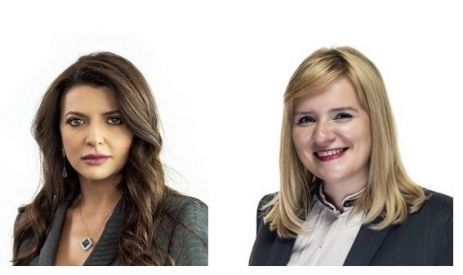
Dealmaking has changed significantly after the outbreak of the pandemic. We have seen shifts not only in deal number and value, but also in the seller-buyer dynamics, in their expectations, the deal structure, and even in the parties' communication – with "remote" being the word of the year.
We sat down with Andrei Gemeneanu managing partner of Morphosis Capital, to discuss his views on how the M&A players will redefine their strategies in the post-pandemic world.
One of the very few things that has not changed in the M&A landscape over the past year or so, is that private equity ("PE") investors have a lot of available funds and the willingness to deploy capital. Building on past lessons learned, PE funds want to make sure they seize the momentum and continue to get deals done. This is also true in Romania, a country that has seen increasing interest from investment funds in the past years.
Confronted with the challenges posed by last year's health crisis and its economic ramifications, the first reaction of PE funds was to take active measures to secure the solidity of their existing portfolio companies. Once they shored those up, the question of new investments arose, and different funds decided to act in different ways in this respect.
"We have chosen to lean into the new reality and to accelerate our capital deployment. Our second deal in Romania was done entirely, from start to finish, during the pandemic.", said Andrei Gemeneanu, the managing partner of Morphosis Capital.
While SMEs are typically the companies most affected in crisis situations, it might prove more difficult than before for PE funds to spot high-growth potential. Companies that have risen to the occasion are now better positioned in the eyes of PE investors. They are, says Andrei Gemeneanu, "the kind of companies we like to partner with."
Talking about challenges in the current M&A landscape, one of the immediate effects of the new normality was the occurrence of valuation gaps. The high volatility in the market made use of historical earnings useless in predicting a company’s future earnings. Tools aimed at bridging the valuation gap by allocating uncertainty risk between buyers and sellers, such as earn-outs, are expected to become increasingly popular.
From a dealmaking perspective, it will be difficult to predict how this will change the dynamics of negotiations. Sellers will witness increasing pressure to sell, with some of them being forced rather than willing to go into such process, but it is nevertheless true that buyers may also face an increasing competition for their potential targets.
As companies need capital sooner rather than later, getting deals done quickly is essential. This is even more so applicable in the new context, and everyone – founders, investors and consultants – are constantly working to keep up with ever increasing paces of PE investments.
For Morphosis Capital, the pandemic triggered the need to reconsider internal processes with an aim to find ways to accelerate dealmaking. "Speed is a very important currency in dealmaking, these days.", said Andrei Gemeneanu.
This is a good time for high-growth Romanian SMEs wanting to further develop their business to seize the moment and attract PE investments. To quote Andrei Gemeneanu, this is the best moment for founders to "prioritise capital-in, versus capital-out, as a viable way to make their companies leaders in their sectors." The dealmaking process is probably more streamlined than ever and the market more prepared than before to quickly adapt to new challenges.
Note: The regional law firm Schoenherr recently launched the 15th edition of roadmap, a yearly publication that includes articles on legal and tax matters from all the firm's jurisdictions, as well as opinions from clients or experts. This material is an excerpt from an interview taken by Schoenherr corporate/M&A lawyers Mădălina Neagu (partner) and Cristina Enaga (senior attorney at law) to Andrei Gemeneau (managing partner Morphosis Capital), published in roadmap21.



 March 08, 2021 14:02
March 08, 2021 14:02 










